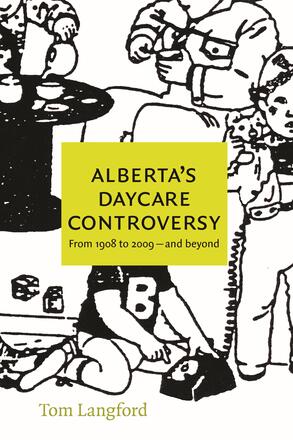
Beginning in the late 1950s debates about daycare in Alberta began to
appear regularly on the public record. Dr. Tom Langford brings to light
the public controversies that occurred during the last four decades of
the twentieth century and the first decade of the new millennium.
Description
Day care in Alberta has had a remarkably durable history as a
controversial issue. Since the late 1950s, controversies over day care
programs, policies, and funding have been a recurring feature of
political life in the province.
Alberta’s Day Care Controversy traces the development
of day care policies and programs in Alberta, with particular emphasis
on policy decisions and program initiatives that have provoked
considerable debate and struggle among citizens. Dr. Tom Langford
brings to light the public controversies that occurred during the last
four decades of the twentieth century and the first decade of the new
millennium, placing contemporary issues in historical context and
anticipating the elements of future policy struggles.